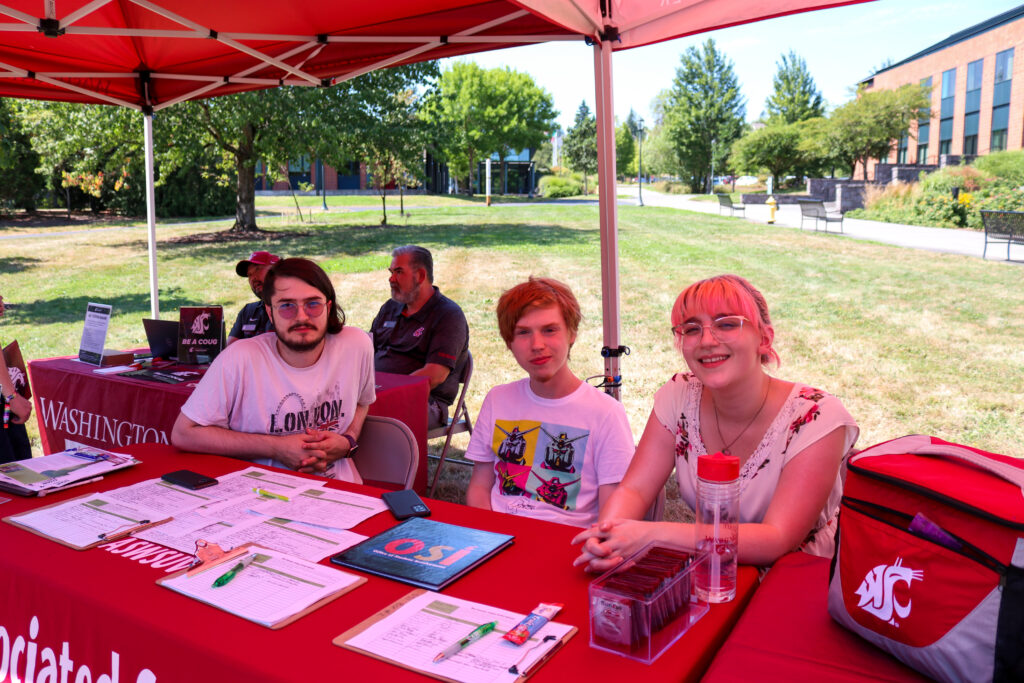The WSU Vancouver Collective for Social and Environmental Justice and Associated Students of WSU Vancouver are partnering together to implement a campus garden, a project intended to address food insecurity, encourage sustainable practices and motivate community building.
According to Desiree Hellegers, English professor and co-director of CSEJ, proposals for a campus garden have been tossed around for a long time. Recently, the idea has garnered increasing support from students, faculty and staff, presenting itself in the form of a petition with 300 signatures and counting.
“[A campus garden] is something CSEJ was looking at long before the pandemic, like 15 years ago … this is something we have continued to cycle back to and something that every time we talk about it, students get really excited,” Hellegers said.
“Having a learning garden or farm on campus seems like a way to remind us every day, when we come to campus, of our dependence on food.” – Desiree Hellegers

(Josalyn Ortiz/The VanCougar)
Before the pandemic, it was estimated that 30% of WSU Vancouver students faced food insecurity, according to Hellegers. CSEJ assumes the number of students experiencing food insecurity has increased since the start of the pandemic. Michael Johnson, the director of communications for ASWSUV, said student government supports the initiative, and that a campus garden would be beneficial to low-income students.
“It could be a really good way to help support students [who need food] and have them be eating healthier and more filling meals … and getting them a little more involved in the process of having that food,” Johnson said.
However, Johnson said a campus garden will be accessible to all students regardless of need and would supplement the non-perishable food the Cougar Food Pantry provides.
“If people saw this as more of a community garden for everyone to take advantage of, not just something for people in need, it would help more people take resources and get involved as well,” Johnson said.
Kaylor Auger is a coordinator for the Food System Justice Action Research project, a program established in 2020 to address food insecurity within the community. Auger said a campus garden presents a unique opportunity to teach students about the history and culture of gardening and the land WSU Vancouver resides on.
According to Auger, having a garden on campus will not only teach students about sustainability and farming, but also contributes to goals that have been set by the Native American Community Advisory Board, such as planting Native foods significant to the Indigenous culture of the region, while educating students on this history.
“We want to look at ways to really center food across the curriculum at WSU. It is such a basic, fundamental thing that we all depend on, so how can we start integrating attention to food across the curriculum, and how can we start developing opportunities for WSU students to create a robust local food system?” Hellegers said.“Having a learning garden or farm on campus seems like a way to remind us every day, when we come to campus, of our dependence on food — it is something that brings us all together.”
Along with nutritional and educational benefits, supporters of the garden initiative hope it will add vibrancy and life to campus, as well as engage students by providing a collaborative and ongoing project opportunity.
“So many students are really struggling with the stress of the pandemic, with the stress of inheriting a world that we know is diminished as a result of the climate crisis. I’ve heard from a number of students that the opportunity to put down their book for a few minutes and go into a green space, help cultivate it and also be able to bring home some food that they’ve grown themselves is a vision that students are really excited about,” Hellegers said.
Leaders of the initiative encourage students to show support for a campus garden by attending CSEJ meetings, providing feedback and signing their campus garden petition.
“I think it’s going to be extremely beneficial in a lot more ways than just providing fresh produce for students. I think it’s going to go way, way deeper than that,” Auger said.

Sawyer is a senior studying anthropology at WSU Vancouver.

I really hope this happens!!!